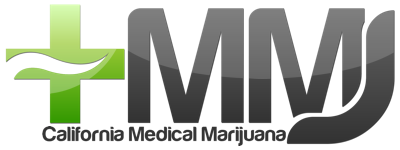By Josh Crank
At Lawyers.com
U.S. Attorney Melinda Haag, one of four federal attorneys behind the nearly two-year crackdown on medical marijuana in California, suggested her enforcement will continue despite new drug policy guidance from the Department of Justice.
Attorney General Eric Holder announced in late August that the federal government won’t sue to block state laws legalizing marijuana in various forms, including the legalization of recreational marijuana in Colorado and Washington. An accompanying memo issued by Deputy Attorney General James M. Cole identified eight specific enforcement priorities on which the U.S. Attorneys should focus.
In the wake of the Justice Department memo, Haag spokesperson Lili Arauzhaase made a brief comment:
“At this time the US Attorney is not releasing any public statements. The office is evaluating the new guidelines and for the most part it appears that the cases that have been brought in this district are already in compliance with the guidelines. Therefore, we do not expect a significant change.”
The fact that Arauzhaase hedged a bit by claiming Haag’s enforcement complies with the new guidelines “for the most part” could be good news for Oakland’s Harborside Health Center, the world’s largest medical marijuana dispensary. Since July 2012, Haag has been trying to seize Harborside and its assets, but the dispensary has remained open due in part to legal support from Oakland’s City Attorney.
The Justice Department memo says that “in exercising prosecutorial discretion, prosecutors should not consider the size or commercial nature of a marijuana operation alone as a proxy for assessing whether marijuana trafficking implicates the Department’s enforcement priorities.”
This directive may as well have mentioned Harborside by name. In announcing her forfeiture action against Harborside, Haag said, “the larger the operation, the greater the likelihood that there will be abuse of the state’s medical marijuana laws, and marijuana in the hands of individuals who do not have a demonstrated medical need.”
To date, Harborside has not been accused of specific violations of California’s medical marijuana laws. Time will tell if Haag will accept the Justice Department’s guidance and drop her forfeiture case against Harborside. But because federal law enforcement is still left up to her personal discretion, Haag is at liberty to ignore the memo and proceed.
Federal Attorneys Go Their Own Way
The new Justice Department guidance elaborates on how U.S. Attorneys should assess threats to its eight marijuana enforcement priorities, encouraging prosecutors to “continue to review marijuana cases on a case-by-case basis and weigh all available information and evidence” before deciding to shut dispensaries down.
But Cole’s presumption that U.S. Attorneys have been taking a case-by-case approach shows just how easy it is for them to ignore this guidance altogether. In a 2012 interview with Lawyers.com, Thom Mrozek, spokesperson for U.S. Attorney Andre Birotte Jr. of California’s Central District, said the state’s federal attorneys “are not examining each marijuana operation” since launching their coordinated crackdown in October 2011.
Mrozek broadly characterized California’s medical marijuana dispensaries as being in violation of state laws requiring them to operate as non-profit organizations and stressed that federal law gives the U.S. Attorneys the right to shut down any marijuana operation without further explanation.
“We have yet to see a marijuana store that is operating as a true non-profit,” Mrozek said. “I’m not saying that we have looked at every operation, nor am I saying that there isn’t one out there, but I am saying that law enforcement has yet to see a true non-profit marijuana operation.”
http://blogs.lawyers.com/2013/09/us-attorney-hints-medical-marijuana-crackdown-to-continue/
